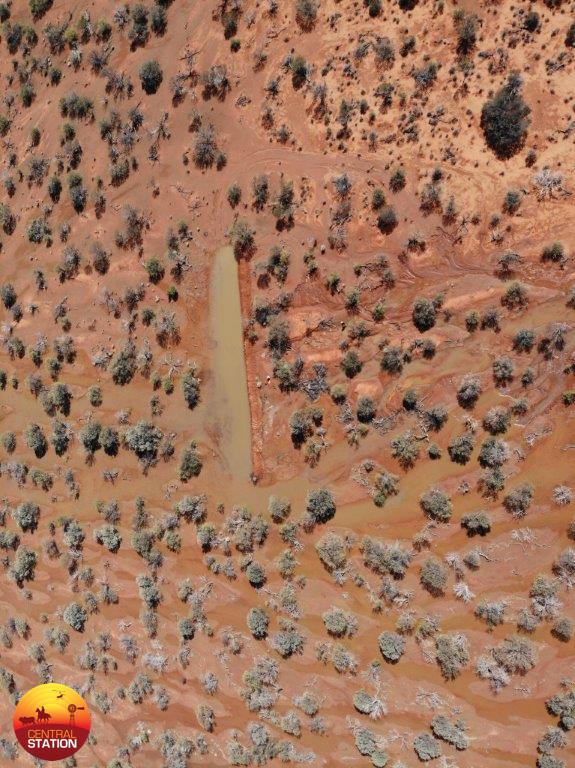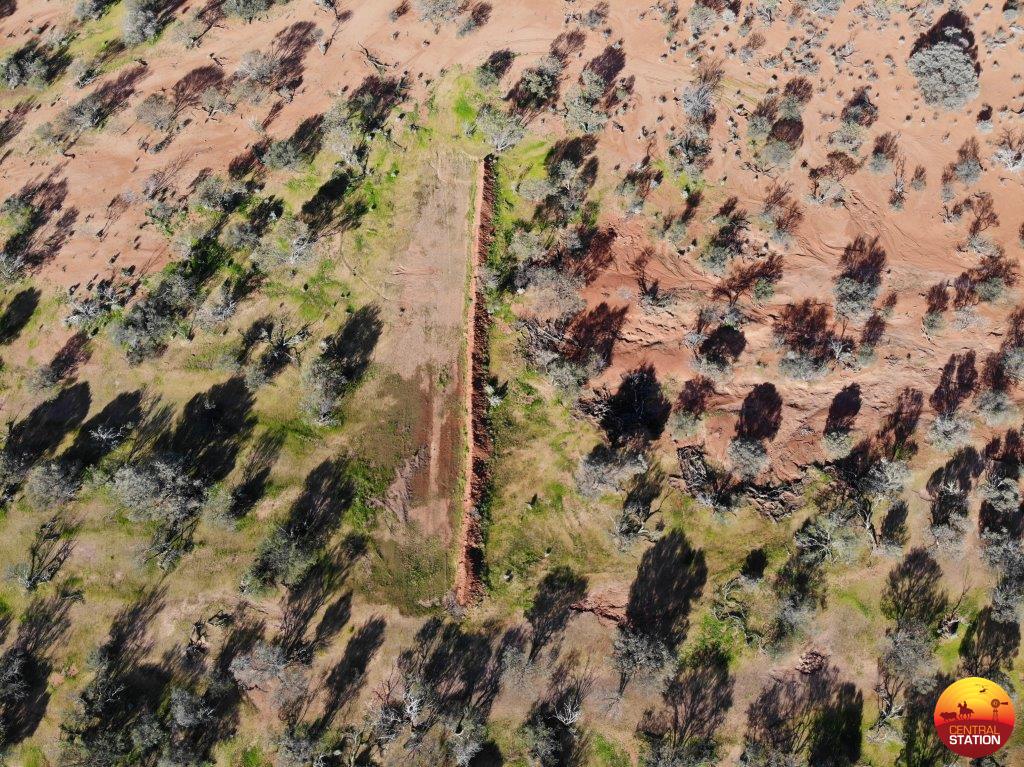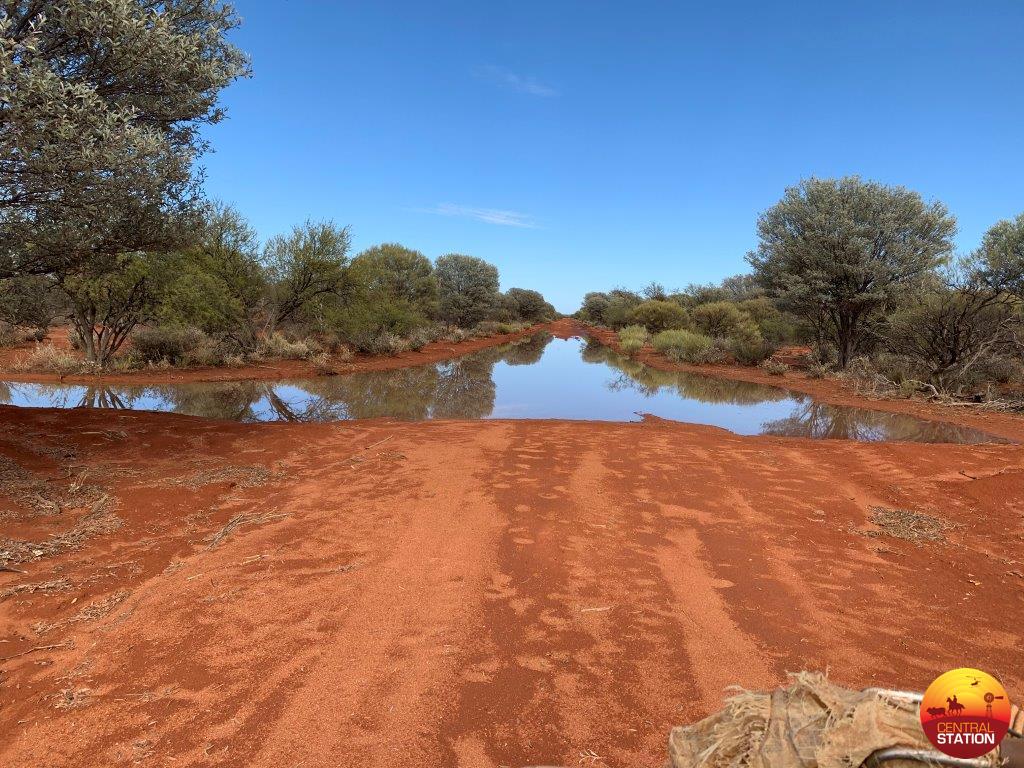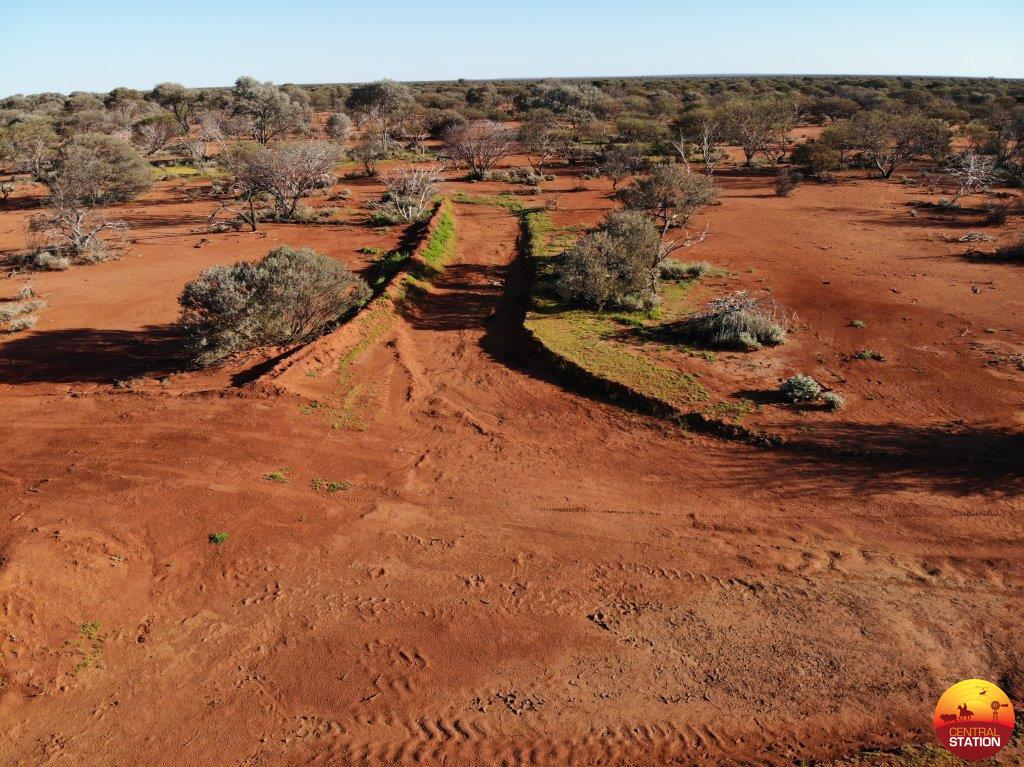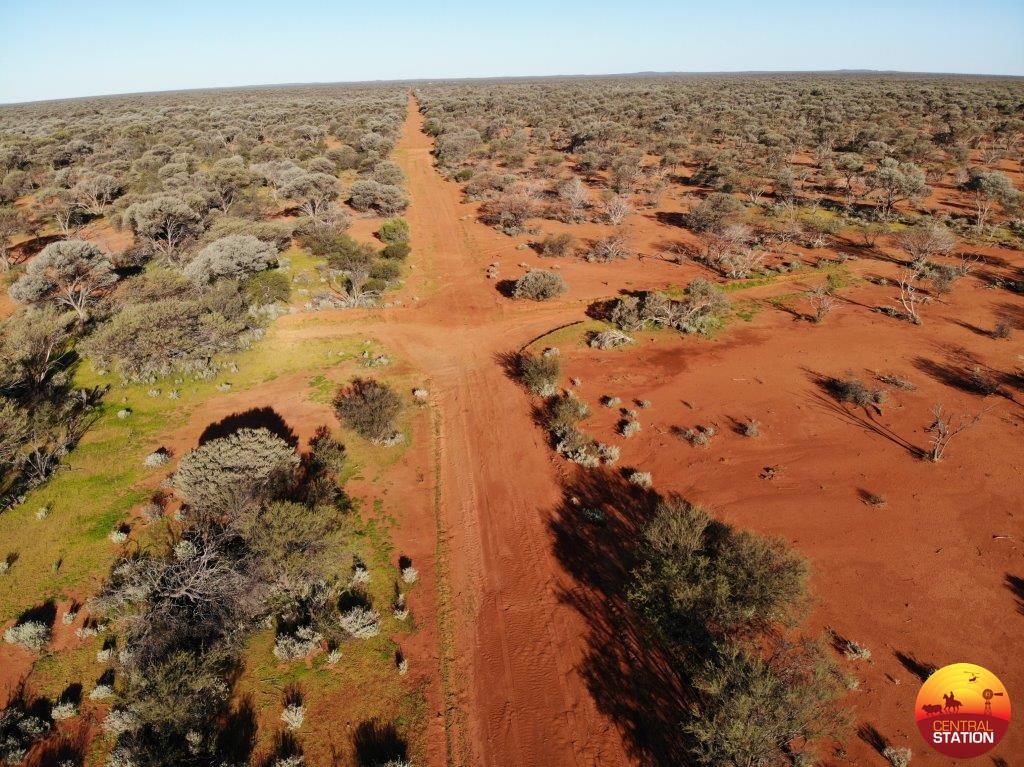Whoa, boy!
Written by Debbie Dowden – Challa Station, WA.
Col Stanton is a bit of a legend in our area.
Not only because he’s a top bloke, can drive a grader like it’s his dancing partner and has loads of interesting yarns to tell. The thing that makes Col a legend is his soil conservation skills. He can read the landscape, the contours in particular, and use a grader to redirect the water flow away from eroded areas and back on the flat where it will do the most good.
Our station, like most, has some pretty degraded areas. The erosion usually starts on tracks where some idiot has driven down in the wet. The tyre tracks leave ruts in the mud which dry and then next time it rains the water flows to the low points – the wheel ruts. Subsequent rains mean a little bit more water flows into the tyre ruts, the water gathers energy, and in no time you have a little creek instead of a road – one governess, years ago, actually asked us why we build our roads up creeks.
These roads, now creeks, take the water and concentrate it into one fast-flowing channel and the valuable rain runs off your property. Thanks to the earlier work of Dr Hugh Pringle and now Col Stanton, we know that the best thing we can do for our country is to slow and spread the water back across the landscape. Every drop of rain is valuable, and we want it to stay on our property and soak in, not rush off to the distant salt lakes.
We have tried a few different methods of slowing the water flow here at Challa, but the most time-efficient methods are those that Col brought in. He came into our area a couple of years ago and showed everybody how to build ponding banks and whoa boys. When he came to our station he went out in our old Aveling Barford grader and built long lines of raised banks across the water flows. There was an intense discussion between my husband, a 5th generation pastoralist, and Col. It wasn’t all a one-way conversation; Col was as interested in our opinions as we were in his and the result was a collaboration of skills.
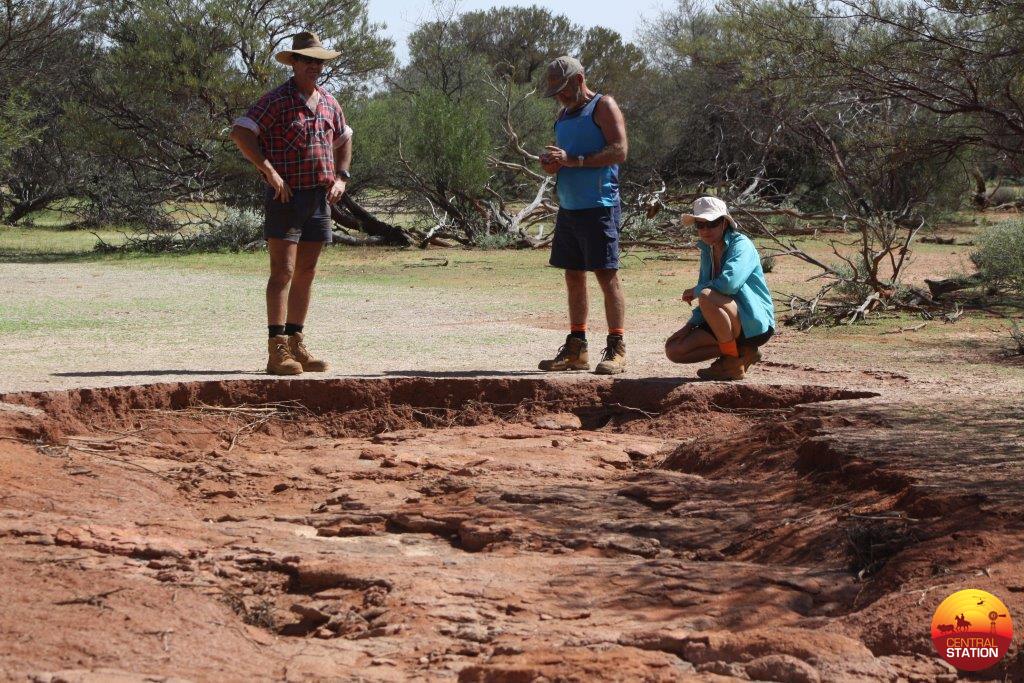 Col Stanton, Ashley Dowden and Mez Clunies-Ross from Rangelands NRM make an
Col Stanton, Ashley Dowden and Mez Clunies-Ross from Rangelands NRM make an
erosion mitigation plan in March 2018.
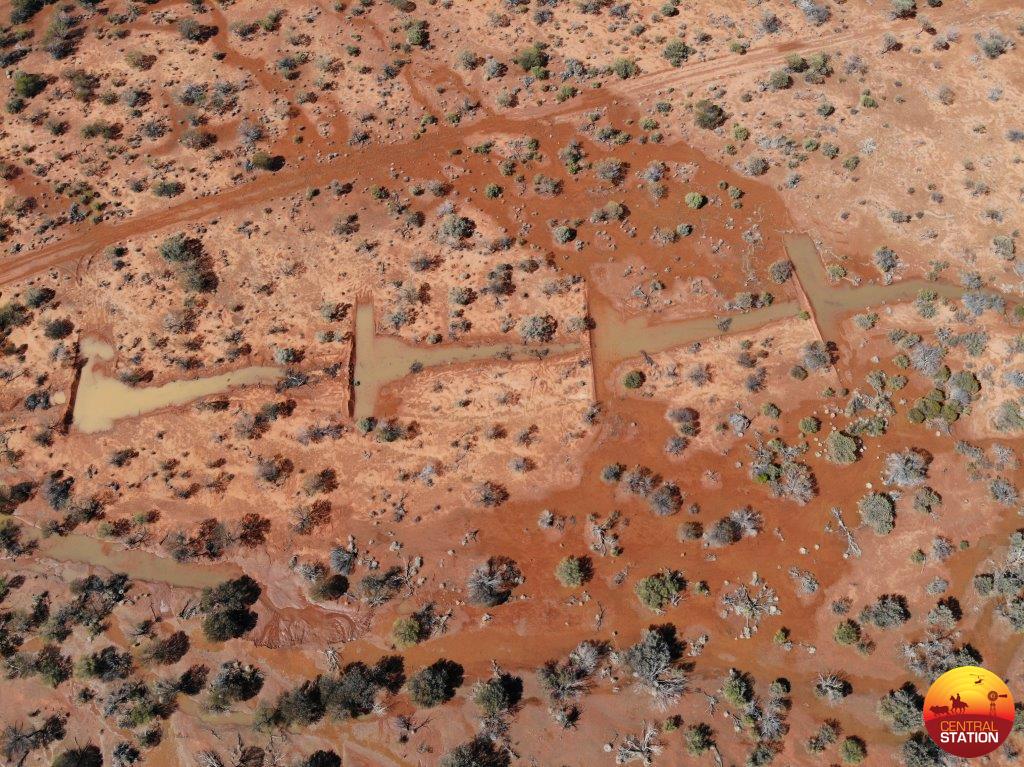
I better mention why they’re called “whoa boys”, so you’re ready next time you go somewhere that Col has restored. He builds dirt banks across the eroded tracks that could be up to a metre high and they cross the road almost at right angles. They act as massive speed bumps, and they leave a lasting impression if you ever drive too fast down that road. Whoa, boy!
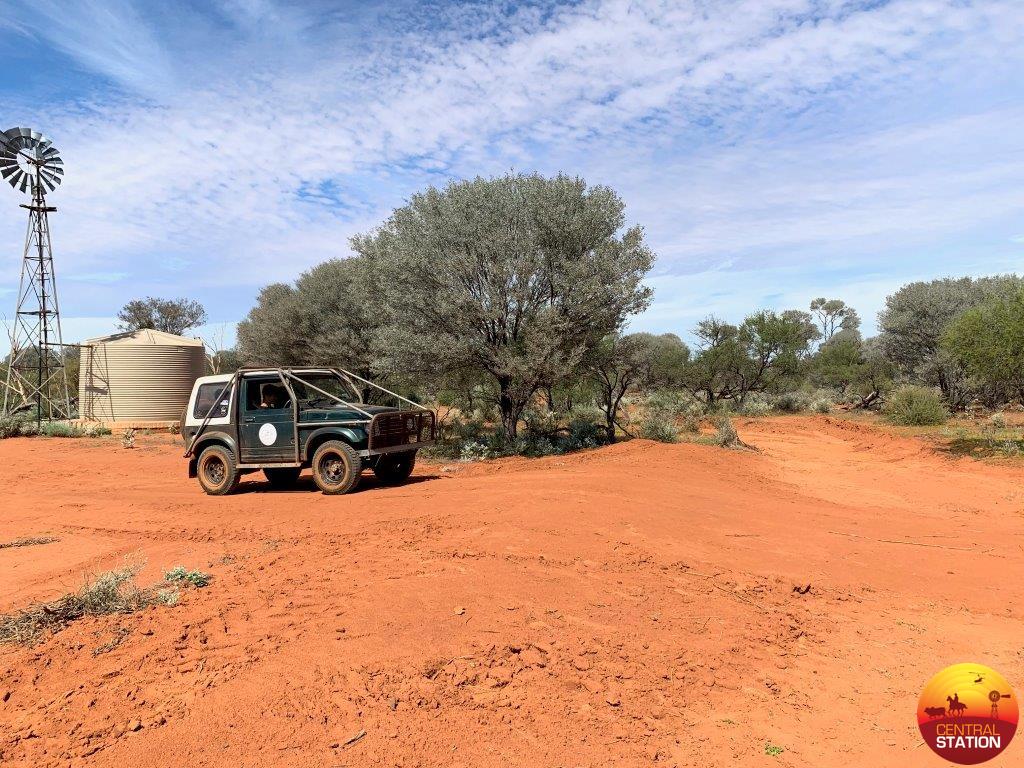
After Col’s visit, we did as we always do in the Southern Rangelands, we waited for rain. Two years later, there was enough of a downpour for us to go out and check how the ponding banks and whoa boys had worked. Seriously, it rains here so infrequently that we can’t afford to waste a single drop. Every millimetre has to soak into the soil, that’s why Col’s work is so important.
The paddock where we did some of the work is a holding paddock close to the house. For years the road has been a creek and the country has suffered – nothing grew. This summer, after some really beautiful rain, you can see where the whoa boys have diverted the water out of the creek bed and across the paddock, back to where it used to flow before that idiot drove down the wet road all those years ago. Where we had built the banks properly, the water has stopped rushing down the road and is now flowing across the landscape. It has changed from a fast-flowing, destructive stream to a low energy restorative water flow. There is feed growing in the holding paddock for the first time since who knows when… not the last 40 years, that’s for sure!
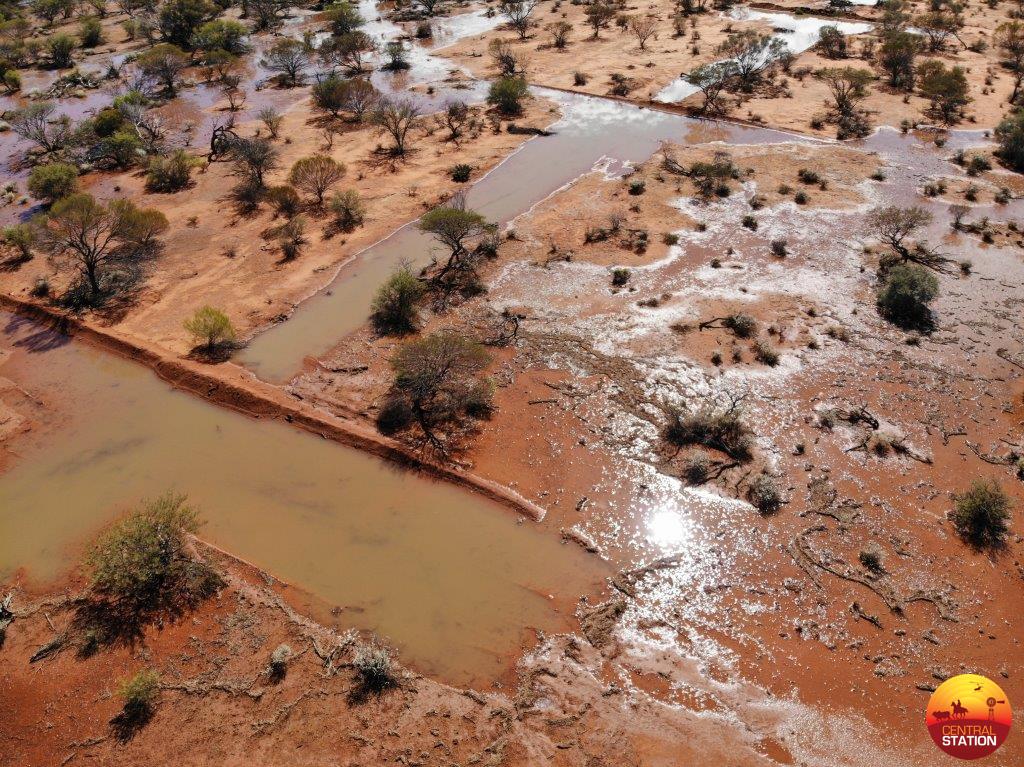
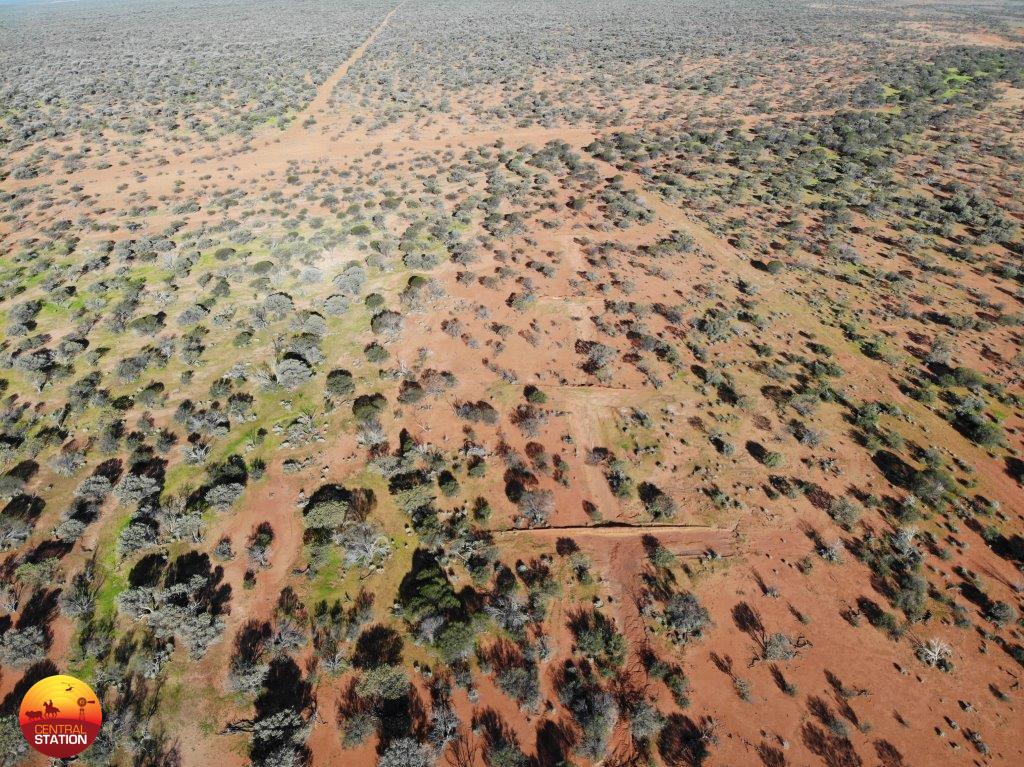
Not all of the whoa boys worked perfectly the first time. They were adequate to cope with the water flow from a light shower, but when we got a decent rain some of the water ran over the tops. We could see which ones had failed and so we took the grader out for a couple of hours and tweaked the design. Now they work a treat.
Thanks to Col Stanton’s work, we now think that the best way to restore the land here is by burning diesel. Take the loader or the grader out and build banks and whoa boys like Col showed us. Slow the water and get it to spread out and gently deposit the silt it carries across the landscape. If you’re interested, you can see some videos of our whoa boys on our Challa Station Facebook page.
